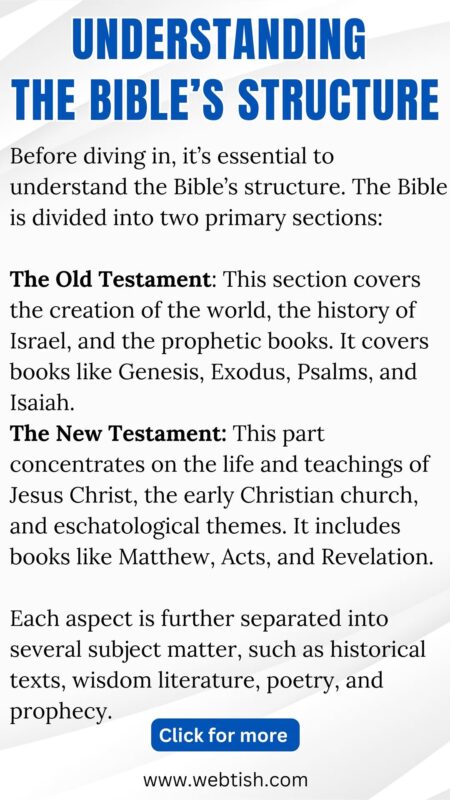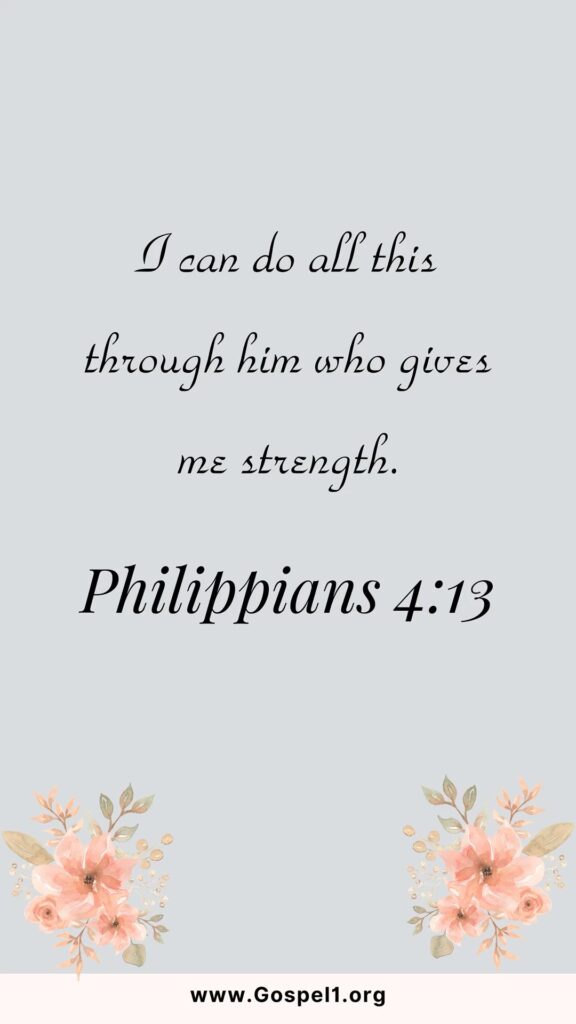Reading the Bible can be a transforming journey, but for many, choosing where to begin can be difficult. With its many chapters, historical events, and spiritual depths, the Bible offers captivating stories, teachings, and wisdom. Here’s a complete guide to help you start reading the Bible efficiently, ideal to various levels of experience and interest.

Understanding the Bible’s Structure
Before diving in, it’s essential to understand the Bible’s structure. The Bible is divided into two primary sections:
The Old Testament: This section covers the creation of the world, the history of Israel, and the prophetic books. It covers books like Genesis, Exodus, Psalms, and Isaiah.
The New Testament: This part concentrates on the life and teachings of Jesus Christ, the early Christian church, and eschatological themes. It includes books like Matthew, Acts, and Revelation.
Each aspect is further separated into several subject matter, such as historical texts, wisdom literature, poetry, and prophecy.

Choosing a Translation
Selecting a Bible translation that resonates with you is important. Some popular translations include:
King James Version (KJV): Known for its magnificent and poetic language.
New International Version (NIV): Balances readability with accuracy.
English Standard Version (ESV): Known for its literal translation and clarity.
New Living Translation (NLT): Offers a more current language that’s easy to understand.
Pick a translation that you find readable and enjoyable, as this will boost your understanding and satisfaction.
Starting Points for Beginners
If you’re new to the Bible, here are a few accessible places to start:
The Gospel of John: Offers a comprehensive yet easy introduction to Jesus’ life and teachings. It focuses on the identity and mission of Christ, providing a spiritual foundation.
The Book of Proverbs: Filled with practical wisdom and instruction for daily living. It’s an excellent place to start if you’re seeking for advise on how to live wisely.

Read also: Daily Bible Verse Of The Day
Genesis: For those interested in the origins of the world and humanity, Genesis provides the fundamental stories of creation, the patriarchs, and early Israel.
For Those Seeking Inspiration
If you’re looking for inspiration and motivation, consider:
Psalms: A collection of prayers and songs that cover a wide range of emotions and experiences. It’s perfect for personal reflection and encouragement.
Philippians: Paul’s epistle to the Philippians is packed with joy, appreciation, and practical guidance for living a Christ-centered life.

Read also: 50 Bible verses about Strength
For Historical and Theological Depth
If you’re interested in the historical and theological aspects of the Bible, you might start with:
Acts: Provides a detailed description of the early church’s rise and the spread of Christianity.
Romans: Offers a deep theological analysis of the gospel and its consequences for Christian life.
Developing a Reading Plan
To make your Bible reading more systematic, consider adopting a reading plan. Here are some options:
Daily Devotionals: Follow a daily reading plan that takes you through selected texts each day.
Bible in a Year: Commit to reading the entire Bible in a year with an organized schedule.
Theme Studies: Focus on certain themes or issues, such as faith, prayer, or forgiveness, and analyze related scriptures.
Using Study Aids
Enhance your reading with study aids like:
Commentaries: Provide historical and theological context to the passages.
Study Bibles: Include notes, maps, and explanations alongside the text.
Bible Apps: Offer features including reading plans, daily passages, and audio readings.
Joining a Study Group
Consider attending a Bible study group or class. Engaging with others can provide various viewpoints, encouragement, and accountability while you read.
Reflecting and Applying
As you read, take time to reflect on the texts and how they apply to your life. Journaling your thoughts and prayers might assist increase your understanding and spiritual growth.
Seeking Guidance
Don’t hesitate to seek guidance from pastors, mentors, or spiritual leaders. They can give insights, answer questions, and provide assistance as you navigate the Scriptures.
Conclusion
Starting to read the Bible is a process of investigation and discovery. Whether you’re looking for spiritual nutrition, advice for daily living, or a deeper grasp of God’s Word, there’s a place for you to begin. By picking a starting point that matches with your interests and needs, applying study aids, and reflecting on the passages, you’ll create a firm basis for a meaningful and engaging Bible reading experience.